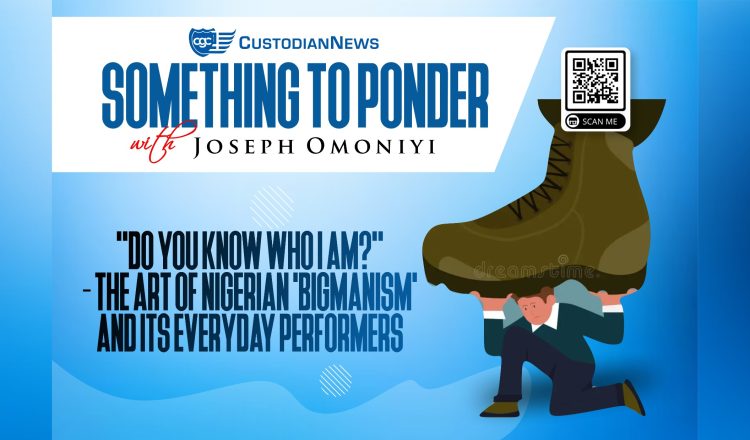The latest viral video showing a Nigerian lawmaker, Alex Ikwechegh, verbally abusing and physically intimidating an e-hailing driver is hardly surprising. For many, it’s just another example of the ugly face of Nigeria’s “bigmanism” mentality, an unspoken social hierarchy where respect and value are often tied to wealth, power, or proximity to it. As the video spread, social media lit up, with Nigerians expressing anger, disbelief, and moral outrage. But let’s be honest – what is really shocking here? Is it the lawmaker’s behavior, or is it our reaction to it?
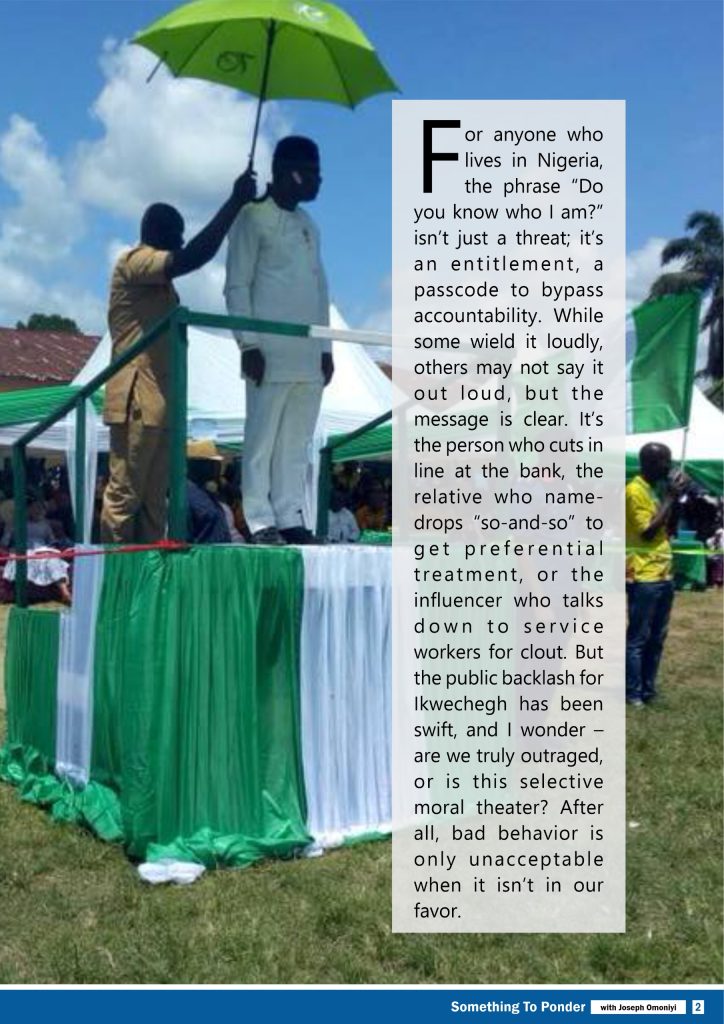
For anyone who lives in Nigeria, the phrase “Do you know who I am?” isn’t just a threat; it’s an entitlement, a passcode to bypass accountability. While some wield it loudly, others may not say it out loud, but the message is clear. It’s the person who cuts in line at the bank, the relative who name-drops “so-and-so” to get preferential treatment, or the influencer who talks down to service workers for clout. But the public backlash for Ikwechegh has been swift, and I wonder – are we truly outraged, or is this selective moral theater? After all, bad behavior is only unacceptable when it isn’t in our favor.
Watching the clip, I couldn’t help but think of the many silent enablers around us. In Nigeria, there are levels to this ‘bigmanism,’ and most people aspire to climb them. We often cheer on the rich, powerful, or ‘connected,’ but how often do we ask about the values behind their influence? Many openly endorse these individuals until their behavior affects us personally, revealing a double standard. We criticize one person’s abuse of status while conveniently overlooking others, perhaps because our silence keeps us in their good graces.
This incident also pulls back the curtain on another uncomfortable truth: how Nigerians perceive dignity in labor. In a society where value is often linked to status and material wealth, jobs seen as ‘lowly’ or ‘menial’ are rarely respected. The e-hailing driver in this video wasn’t seen as a fellow human but rather as a tool that had failed to serve a ‘superior.’ It’s why people are shocked to see a lawmaker treat an ordinary worker like this – yet how many of us, if we’re honest, believe that everyone deserves equal respect? Do you have an idea how many times an average ‘okada man’ has had similar experiences with many Nigerians?
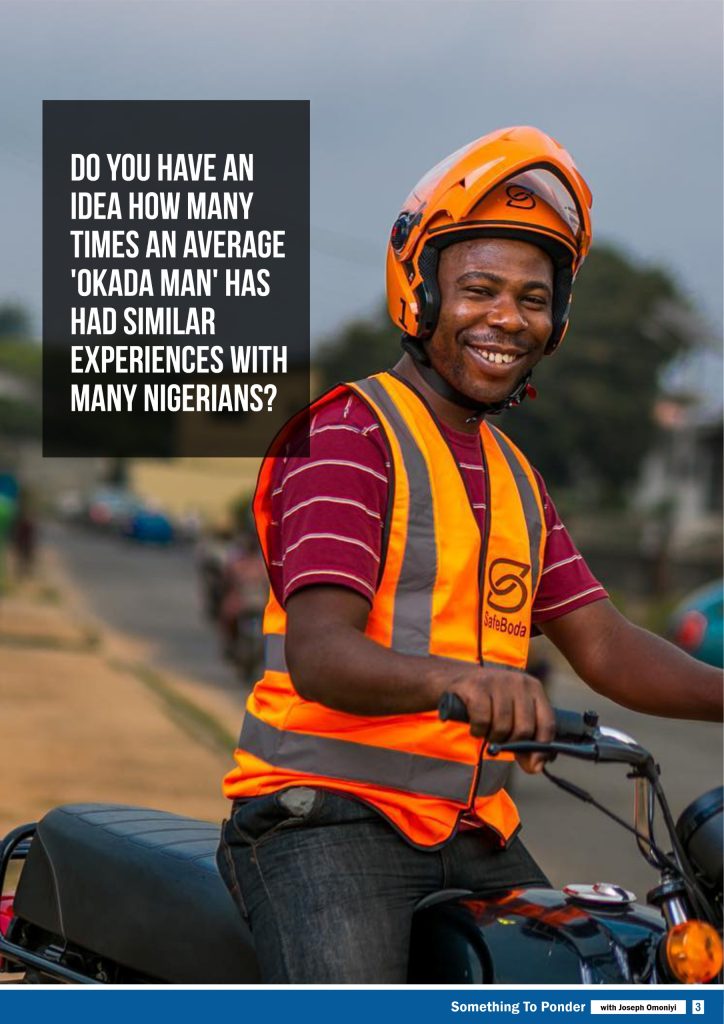
If we are serious about the top, we must move beyond mere lip service and genuinely embrace the principle that every individual deserves unconditional respect. We must recognize and honor the inherent value of each person, regardless of their socio-economic status or occupation. We must actively realize that a keke driver is important. A vulcanizer is important. A pepper trader is important. A shoemaker is important. They are not just important. They are equally important. Their labor is not a measure of their worth. We cannot demand respect for ourselves while dismissing or belittling those we deem ‘beneath’ us. True equality demands we treat everyone with the same kindness, compassion, and humility, regardless of their position or profession.
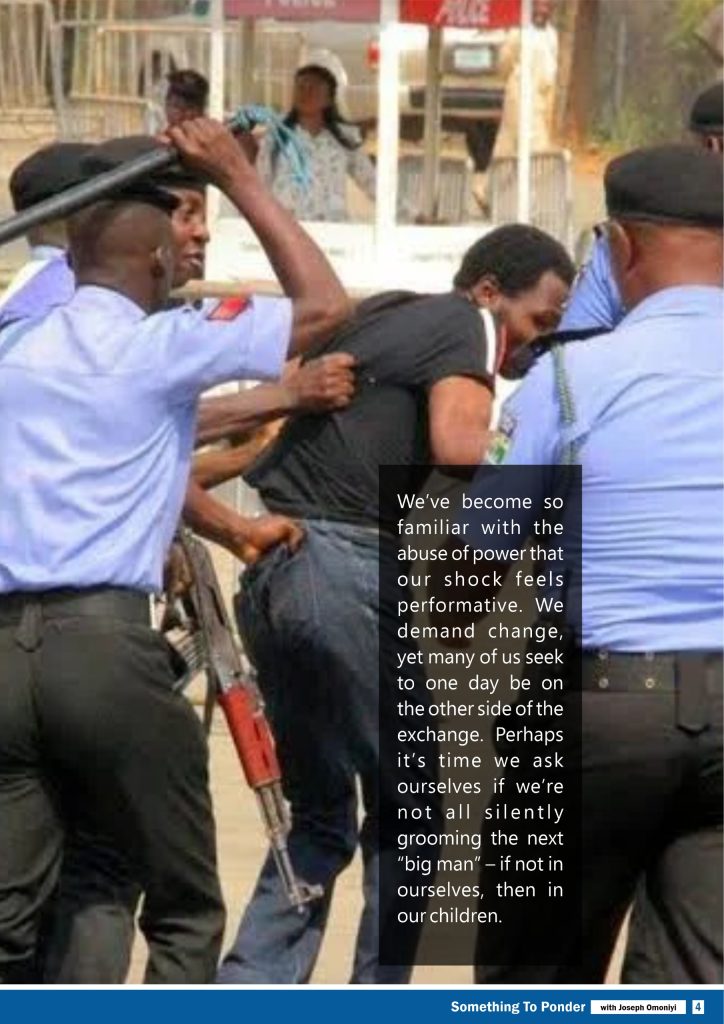
Let’s break free from the chains of classism and recognize the intrinsic value in every human being. Every person’s contribution matters. Every person’s life matters. Every person deserves respect, period.
It’s easy to point fingers at Ikwechegh, but it’s equally convenient to ignore the countless other mini-despots around us. How many of us turn a blind eye when our relatives, friends, or mentors are rude to subordinates? It seems that we draw the line on ‘bigmanism’ only when it doesn’t suit us. Yet, at its core, the ‘bigman’ syndrome is about power in every interaction, from the executive suite to the corner kiosk. It thrives in Nigeria because we allow it – because we, too, harbor aspirations of using it someday.
Read also:
The Nigerian Japa Syndrome: Myths and Truths (I)
The Independence Generation: Stories of Nigerians Born in 1960 – What it Felt Like
The Things-Fall-Apart-Okonkwo Debate: Can Idris Elba Roll Fufu?
The irony is in the outrage itself. We’ve become so familiar with the abuse of power that our shock feels performative. We demand change, yet many of us seek to one day be on the other side of the exchange. Perhaps it’s time we ask ourselves if we’re not all silently grooming the next “big man” – if not in ourselves, then in our children. The solution to this cycle doesn’t lie in simply condemning one person’s actions; it lies in reshaping our attitudes toward respect, dignity, and power.
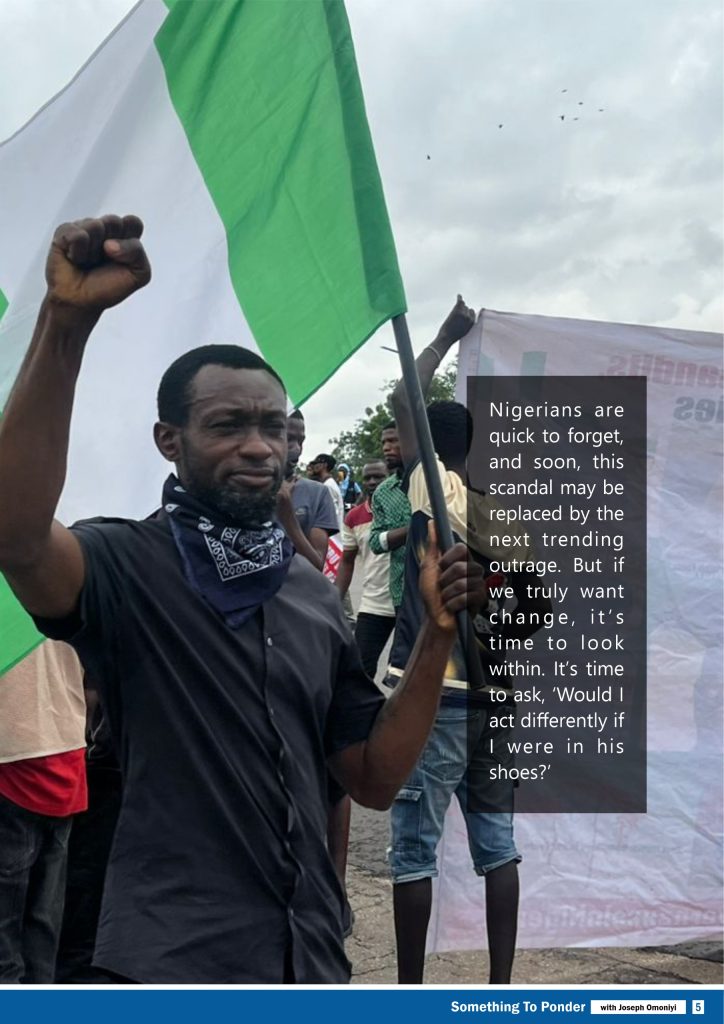
So, where do we go from here? Nigerians are quick to forget, and soon, this scandal may be replaced by the next trending outrage. But if we truly want change, it’s time to look within. It’s time to ask, ‘Would I act differently if I were in his shoes?’ And more importantly, to challenge ourselves to treat every person – from the CEO to the cab driver – with equal respect.
We must do better, not just for today’s Ikwecheghs but for the ones we unwittingly create every day.


